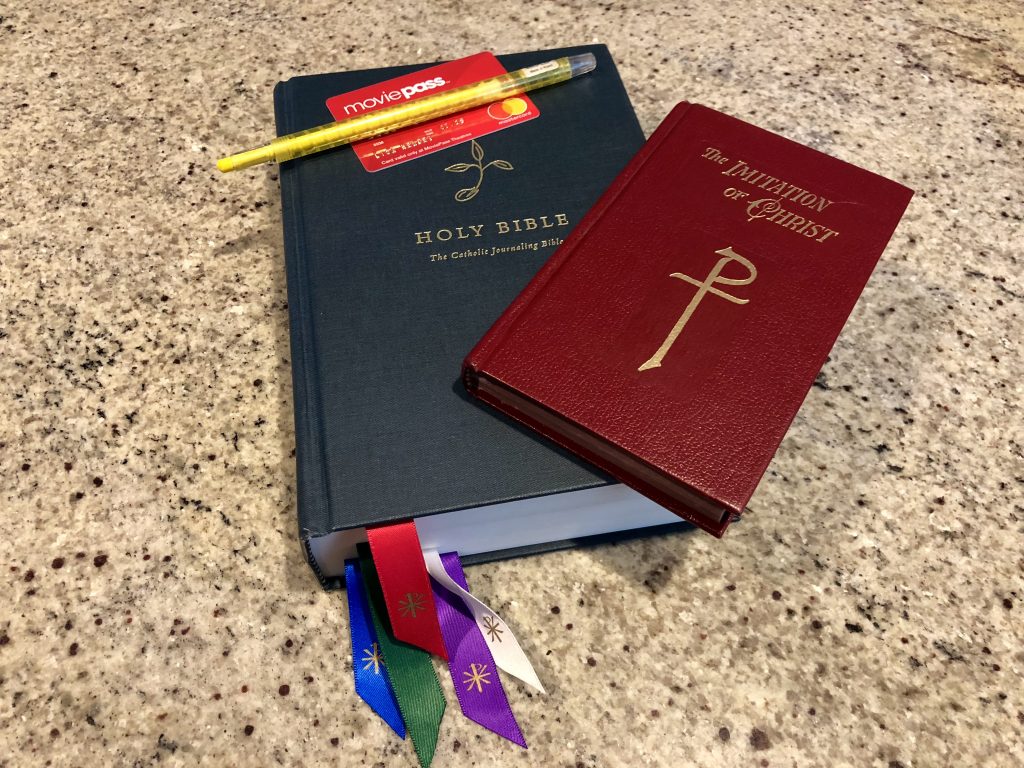
It’s Summer blockbuster season, which means that screens nationwide are filled with snarling supersized dinosaurs and superheroes saving the day. And if you’re paying attention to headlines, you’ll find the innovative company MoviePass turning heads with the inconceivable offer of one movie ticket per day for $9.95 a month.
Since I’m a storytelling empty nester who lives in Los Angeles equidistant from two theaters that accept MoviePass, I decided to check out the service for myself. My first two outings were wonderful. Incredibles 2 reminded me of the power of families working together and Leave No Trace heightened my awareness of war veterans, post-traumatic stress, and families who choose to live unhoused. Soon, MoviePass began to entice me with its lure to be “caught up” on the endless stream of new viewing options. When I caught myself asking, “Can I see Ant-Man and the Wasp without having seen the original?”, I began to ask the obvious question:
Do I really NEED to see Ant-Man and the Wasp? To what benefit?
My new adventure with @MoviePass has me looking at the spiritual experience of watching films. Sharing insight from friends on how to choose and meditate upon a movie! Share on XWe see movies for all sorts of reasons. And for those of us living in Southern California, we are well-aware of the large segment of the population here whose livelihoods depend upon the silver screen. But my MoviePass membership caused me once again to ponder whether consumption of anything simply for consumption’s sake is good for my soul.
While we might not see film as “litter”, as one who is striving to understand and live the precepts of Pope Francis’ encyclical Laudato Si’, I pondered the connection between MoviePass and an overly consumeristic lifestyle. Pope Francis writes, “Since the market tends to promote extreme consumerism in an effort to sell its products, people can easily get caught up in a whirlwind of needless buying and spending. Compulsive consumerism is one example of how the techno-economic paradigm affects individuals.” (p. 203) and warns, “The emptier a person’s heart is, the more he or she needs things to buy, own and consume.” (p.204)
So, I went to one of my wisest groups of advisors—my Facebook friends—for a dialogue about film and faith. I asked them how they made viewing choices, what specific resources that they consult to make informed choices, and finally how they “process” a film spiritually after they see it. In my mind, I want my consumption of movies to be similar to my goal in reading most books—I’d like for it to result in a personal “call to action”. I aim to emerge from the theater in some way changed, inspired or ready to help the world around me based on what I’ve experienced.
Here are a few of my friends’ helpful insights:
- Producer and screenwriter Erin Dooley chooses movies that help her feel She suggests pondering after viewing what you personally might have reacted if confronted with the things the characters in the film has to face. What choices would you make?
- Moviegoer and musician Brandon Christison pointed to three recent films that caused him to ponder the moral implications of the characters and their choices.
- Tony Rossi, a popular radio host and producer for The Christophers, consults both faith-based and secular reviews for films to help make choices and prefers movies that organically integrate their message into the storyline without being overly “preachy”.
My neighbors here in Los Angeles, the wonderful Daughters of St. Paul, make it a part of their mission to engage with popular culture. Sr. Nancy Usselmann FSP, author of A Sacred Look: Becoming Cultural Mystics: Theology of Popular Culture, shared her process for meditating upon a film after seeing it. For approximately fifteen minutes, Sister Nancy ponders:
- how the human person was treated/respected in the film
- what the film spoke to her about deep human desires and yearnings
- how the film made her feel and what emotions it prompted
Sister Nancy leaves every experience of viewing a film asking herself what lessons she has learned personally and spiritually that will apply to her own life. As one who has benefitted directly from Sister Nancy’s teaching and writing, I am learning that applying her meditative approach to film consumption to my own life is bearing fruit.
Families who are looking to get more about of their experience of moviegoing can look to some terrific resources to help them before and after they see films. A few helpful tools include:
- Movie reviews from Catholic News Service, which include both MPAA ratings and a more faith-oriented CNS Classification system
- Sister Rose Pacatte’s reviews at Rotten Tomatoes
- Deacon Steven Greydanus’ reviews at Decent Films
- Virtue Works Media’s printable tool which helps families pray together and consider the virtue-oriented message of movies
Armed with these new insights and tools, I feel ready to take a more mission-minded and meditative approach to choosing my MoviePass selections. I still won’t be seeing movies daily, but I’m excited about the prospect of frequent and intentional film “retreats” this summer.
A question for you: Have you seen a movie this summer that impacted you spiritually? How do you choose which films to view?
